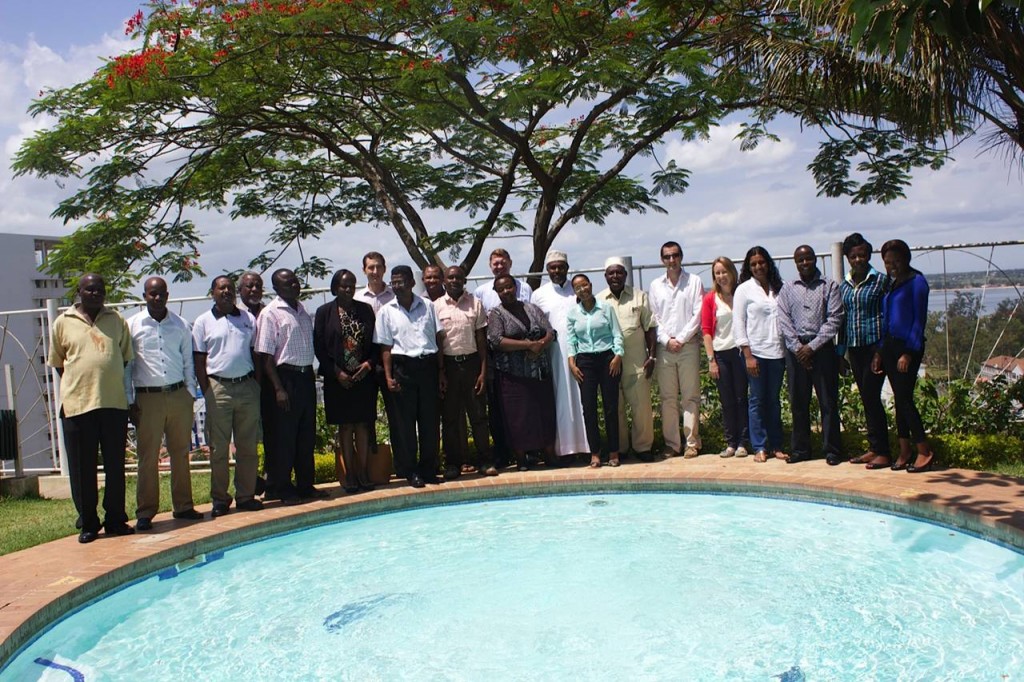by Charlie Gough, Monitoring and Evaluation Coordinator, UK
Flying into Maputo, Mozambique in November 2013 I was excited and a little apprehensive. I was representing Blue Ventures at the 4th annual forum of civil society organisations (CSO)/private sector (PS) for sustainable tuna fisheries management in the south-west Indian Ocean (SWIO). The forum, established in 2010, comprises organisations from all over the western Indian Ocean (WIO) representing both fishing communities and other CSOs and private sector partners.
The meeting opened with an address from Ms. Anabela Rodrigues, the WWF Mozambique Country Director who was hosting the forum this year. And then my turn, as Blue Ventures’ representative (vice-chair of the forum), to again welcome the participants and emphasize the need for the forum to strengthen its voice in achieving change at both the national and regional level.
Establishing national tuna fishery alliances
Many SWIO countries often do not possess the means themselves to harvest the bounty of Tuna, which exists within their waters, and so instead they sell off fishing licenses to distant water fleets from the rest of the world. Unfortunately this is not always done in a fair or regulated way, with agreements largely providing little benefit to the host country and with little regard for the sustainability of fish stocks. With a lack of financing these countries also lack any ability to control or enforce anything on these Distant Water Fleets (DHWs) fleets, and often there is much illegal, unreported and unregulated (IUU) fishing that goes on.

The participants of the tuna forum
In the first session of the day participants explained how they and their national partners have worked in individual countries to develop national CSO/PS tuna fishery alliances. These groups will work with governments, and partners to develop Tuna management strategies for each nation within the SWIO, as well as advocate for changes to policy and advise government ministers as to how to achieve better terms and conditions when negotiating with with DWFs.
These talks were interesting with each country at different stages of development, from Kenya and Tanzania where a national platform is now well established and already has a mandate and working plan for 2014. To other countries such as Madagascar, where the alliance has been established more recently and working groups have been formed to develop different parts of the mandate in 2014.
To end the first day Michael Marriott from the Marine Stewardship Council (MSC) spoke to the group about eco-labelling. The market for eco-labelled tuna is large and there are already a number of eco-labelled tuna fisheries both in the SWIO region and globally. He finished by showing us a film that explains more about the MSC eco-label and what it can achieve. The film can be found here http://www.msc.org/newsroom/video/our-fisheries-our-future
On Day 2 of the forum the other CSOs and PS representatives gave an overview of their activities to date within the tuna sector and how they are supporting their national governments to develop more sustainable fisheries within the SWIO.
I presented the work that Blue Ventures’ Mialy Andriamahefazafy has been doing with the Madagascar’s Ministry of Fisheries to develop a tuna strategy and summarised recent papers that have been published by Blue Ventures and partners at the University of British Columbia, which illustrates the current unfair conditions that are present within fisheries agreements. I also presented a summary of results from a recent publication with the University of Hawai’i that illustrates the economic importance of small-scale fisheries in Madagascar and highlighted the need for better monitoring of small-scale fisheries to develop more applicable and effective management strategies.
Peter sol Rogers from Wananchi Marine Ltd also highlighted the issue of a lack of data, stating that without information about the stocks and what is being extracted we cannot manage the fishery effectively. He proposed that the group look into integrating Information and Communications Technology (ICT), (that’s mobile phone technology to you and me) into the small scale fishery, both as a means to bolster market prices for tuna for small scale fisheries as well as providing much needed data on these remote and dispersed fisheries. His suggestion was that if small scale fisheries can provide the data from their landings there is no excuse for the industrial fleets to not do the same.
The day was rounded off with a summary of the forum and agreement of the recommendations made on how to develop the forum and national fisheries alliances.
As the representatives left the forum there was a sense that while there is a long way to go, there remains solidarity and momentum within the CSO and PS that we hope will be a force for change in the future.

